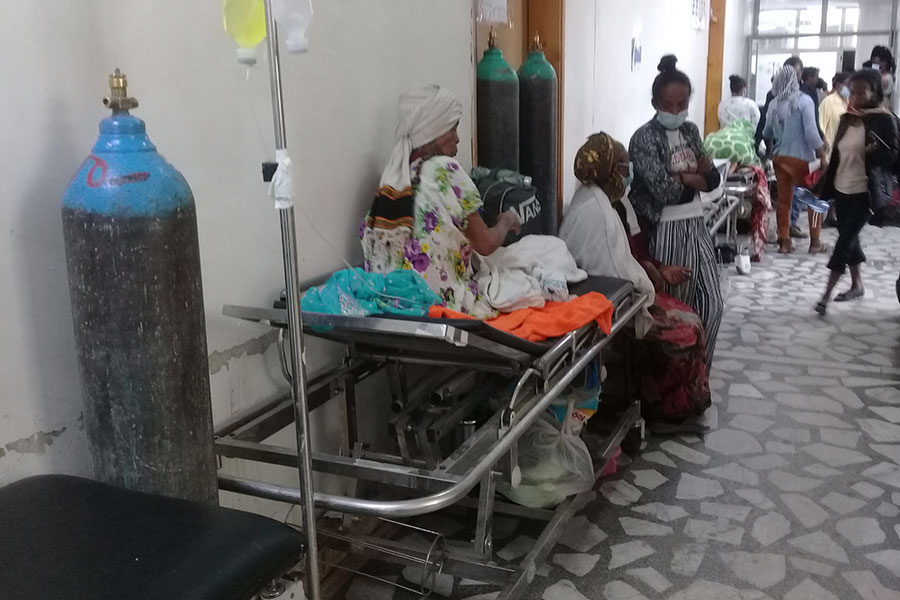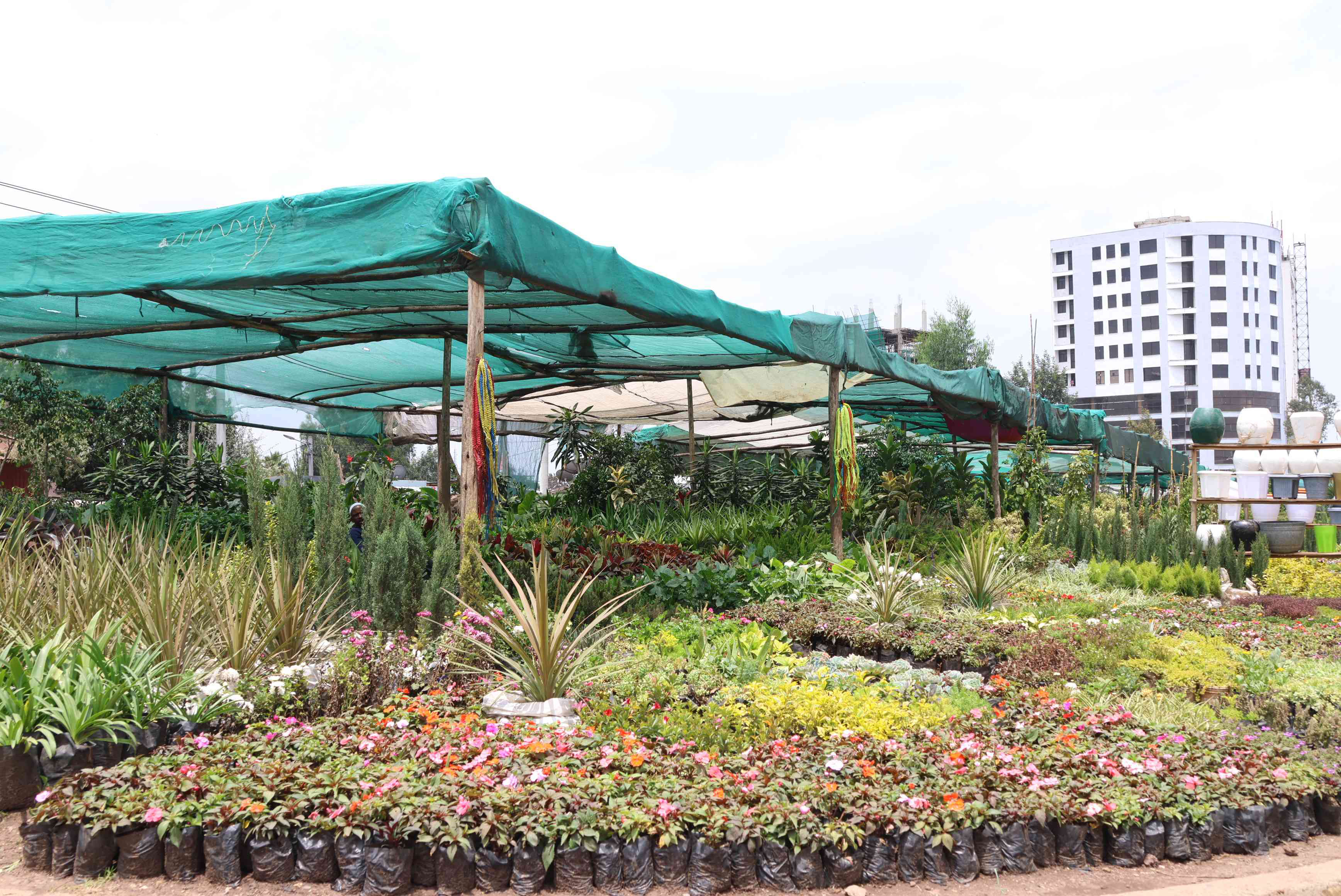
Commentaries | Mar 18,2023
Apr 29 , 2023
By Eden Sahle
Medical practitioners at Zewditu Memorial Hospital are struggling with a scarce water supply. The unhygienic restrooms remain locked most times. They usually leave the hospital compound in search of toilets and water to wash in cafés, restaurants or mosques.
The burden is significant on women. They are compelled to retain sanitary pads for long hours risking infections especially when on duty for 24 hours. Pregnant women suffer as they need to use the bathroom frequently.
This is all happening in the centre of the capital city.
A person who has set foot in public hospitals is familiar with the unhygienic restrooms. The foul odour due to lack of water makes it uncomfortable for patients and attendants to stay around. However, it is overwhelming that the toilets come in short supply even for medical practitioners who are forced to use one unsanitary restroom per ward that may remain locked. The wards with barely functioning washrooms deny their colleagues from other wards access.
The scene of the restrooms is sickening to describe let alone use it. Medical professionals are forced to share the equally dirty lavatories of admitted patients or avoid eating and drinking so that they are not pressed to use one.
I believe that public hospitals in Ethiopia are far from being a place patients go to get free of infections rather increase the possibility of getting one. The sight of uncleaned bloody floors amidst the chaos in the emergency ward is not rare. Mice and bed bugs are inhabitants in the wards to the point of forcing patients to install mice catchers and bed bug repellants.
World Health Organization (WHO) puts hand hygiene as the most important measure to prevent healthcare-associated infections. Something public hospital care providers fall short of, exacerbating the avoidable infection.
The scarce water supply leaves medical practitioners to wash with alcohol after using toilets or eating. The risk of cross-contamination is real. Practitioners say lack of hygiene is a drawback on patients’ recovery that worsens underlying conditions and reduces the quality of life after being discharged from hospitals.
One does not need to be a medical practitioner to imagine the magnitude of the problem. A visit to public hospitals proves how much the institutions are neglected. The biggest hospital in the country Black Lion Hospital is not immune to these nuances where the lack of functioning toilets turned the corners of the large compound into one. Being at the compound is almost as disturbing as one can experience inside the hospital due to the foul smell.
The bedrooms both genders of medical doctors share during their 24-hour duty hours are tainted. It is unimaginable how medical doctors who are aware of the health hazards sleep on them. Their justification is marred by a lack of better choices following a 20-hour shift.
These problems are not new to medical practitioners. They have grieved the administration for decades and are still revving decades later. Unless infection control is dropped off the Ministry of Health agenda they should not be complacent and ignore the critical problem that can affect the health of medical professionals, patients and attendants.
Those in the medical sector emphasise the importance of infection prevention and control as one of the critical priorities for medical institutions. When ignored these health hazards lurk in hospitals and increase the risk of infections, complications and death.
In Africa, the chance of being harmed in a hospital setting is much higher and the risk of acquiring a healthcare-associated infection is as much as 20 times higher. A high proportion of patients are infected with harmful germs, bacteria and viruses, which continually jeopardise their health. There is a one in 300 chance of healthcare-induced injury that equates to thousands of premature deaths daily, according to WHO. The organization says the developed nations are not immune to harm although putting the number at a much smaller scale to one in 10 patients.
The government has ambitions to make Ethiopia a medical tourism destination. However, its own citizens are losing faith, travelling to other countries even for simple checkups. Addressing these catastrophic problems should come first. The alarm has been ringing for a long time seeking the attention of authorities and ignoring it further only aggravates the damage.
PUBLISHED ON
Apr 29,2023 [ VOL
24 , NO
1200]

Commentaries | Mar 18,2023

Fortune News | Oct 07,2023

Life Matters | Nov 27,2021

Viewpoints | May 16,2020

Radar | Oct 23,2023

My Opinion | Apr 13, 2025

Fortune News | Jul 27,2025

Life Matters | Nov 07,2020

My Opinion | Nov 04,2023

Viewpoints | Feb 12,2022

Photo Gallery | 179268 Views | May 06,2019

Photo Gallery | 169465 Views | Apr 26,2019

Photo Gallery | 160371 Views | Oct 06,2021

My Opinion | 137165 Views | Aug 14,2021
Commentaries | Oct 25,2025

Dec 22 , 2024 . By TIZITA SHEWAFERAW
Charged with transforming colossal state-owned enterprises into modern and competitiv...

Aug 18 , 2024 . By AKSAH ITALO
Although predictable Yonas Zerihun's job in the ride-hailing service is not immune to...

Jul 28 , 2024 . By TIZITA SHEWAFERAW
Unhabitual, perhaps too many, Samuel Gebreyohannes, 38, used to occasionally enjoy a couple of beers at breakfast. However, he recently swit...

Jul 13 , 2024 . By AKSAH ITALO
Investors who rely on tractors, trucks, and field vehicles for commuting, transporting commodities, and f...

Oct 25 , 2025
The regulatory machinery is on overdrive. In only two years, no fewer than 35 new pro...

Oct 18 , 2025
The political establishment, notably the ruling party and its top brass, has become p...

Oct 11 , 2025
Ladislas Farago, a roving Associated Press (AP) correspondent, arrived in Ethiopia in...

Oct 4 , 2025
Eyob Tekalegn (PhD) had been in the Governor's chair for only weeks when, on Septembe...

Oct 25 , 2025 . By YITBAREK GETACHEW
Officials of the Addis Abeba's Education Bureau have embarked on an ambitious experim...

Oct 26 , 2025 . By YITBAREK GETACHEW
The federal government is making a landmark shift in its investment incentive regime...

Oct 29 , 2025 . By NAHOM AYELE
The National Bank of Ethiopia (NBE) is preparing to issue a directive that will funda...

Oct 26 , 2025 . By SURAFEL MULUGETA
A community of booksellers shadowing the Ethiopian National Theatre has been jolted b...